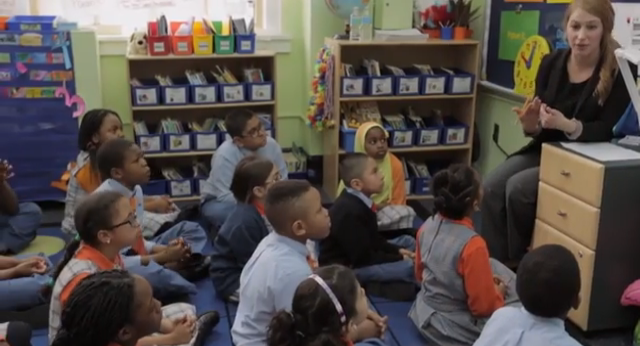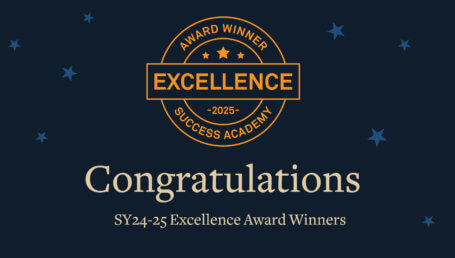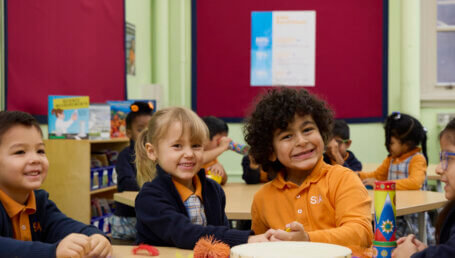
Somewhere along the way, poetry seems to have developed a reputation for being boring, old-fashioned, and impossible to understand. Sure, there are plenty of esoteric and oblique poems out there, but there are hundreds and hundreds of poems that are accessible and enjoyable for children.
At Success Academy, kids and adults read, analyze, write, and perform poetry all year long — not just in April, National Poetry Month. We believe learning to read, understand, and love poetry is incredibly important. Poetry challenges us – kids and grownups alike – pushes us as readers and thinkers, and rewards us with gorgeous language, transcendent images, wit, and wordplay.
Some of our favorite poets are Eloise Greenfield, Georgia Heard, Douglas Florian, Valerie Worth, Nikki Giovanni, Janet Wong, Gary Soto…but there are too many to name! And we don’t read only poems that are written for children. Our middle schoolers dig into Langston Hughes and Emily Dickinson, Sherman Alexie and Elizabeth Bishop; the list goes on.
We want to make sure our scholars never develop that fear of poetry that seems to grip so many kids. We purchase poetry books by the dozens and comb through them for poems our kids will love. One day this year, I read 500 poems — now THAT is a great day’s work!
At Success Academy, we share poetry with kids in many ways. During a shared text lesson, teachers guide scholars through a close reading of a poem that’s just a little harder than they can tackle on their own. Kids explore figurative language, discuss the poem’s meaning, and pay close attention to craft and structure — the poet’s word choices, repetition, line breaks, all the decisions the author made.
During our poetry units, kids have the opportunity to both read and write poetry. Starting in third grade and continuing through middle school, kids read a novel in verse, which many find especially memorable. Favorites include Love That Dog by Sharon Creech, Locomotion by Jacqueline Woodson, and Home of the Brave by Katherine Applegate. Poetry writing encourages kids to play with language, hone their vocabularies, and experiment with sound words, rhythm, and rhyme. The brevity of poetry forces them to choose words carefully for maximum impact, to distill their writing down to its most powerful form.
SA Washington Heights principal Kelsey DePalo told me that some of her favorite memories as a teacher involve scholars smiling, clapping, and nodding along during poetry lessons. “There’s a musicality to poetry that scholars can hear and create,” she says.
“There’s a musicality to poetry that scholars can hear and create.”
Our teachers also like to share poems just for the joy of it. Not every poem needs to be taken apart line by line and analyzed for a sophisticated meaning. Some poems, like some books, are just for fun. Others may be too complex for young children to fully understand but help kids get used to hearing the “old-fashioned” language they will encounter when reading classics. We love to challenge kids to memorize poems or to prepare an expressive interpretation to share with the whole class. We also encourage kids to use poetry as a form of creative expression. For example, Shira Lerman, a kindergarten teacher at SA Washington Heights, recently had her scholars listen to a poem and paint what they heard – bringing out her scholars’ artistic side much to her delight.
Once you can read poetry, you can read anything. Poems are portals into the world of literature — where every word and phrase has import, figurative language conveys rich meaning, and readers uncover lasting truths.










